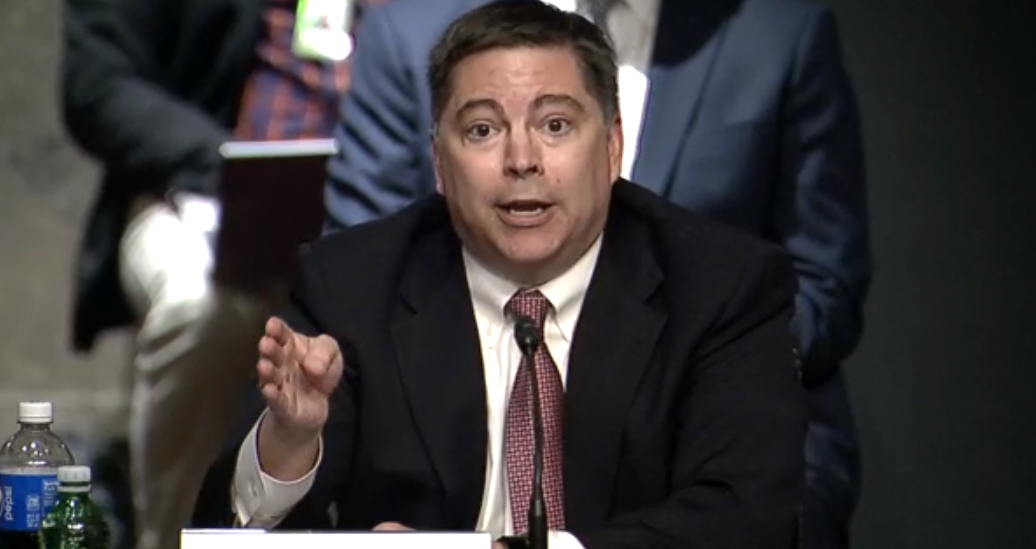O'Rielly Calls Government 5G Net Horrible Idea
Said idea it could be more secure 'preposterous'

The smarter way to stay on top of the multichannel video marketplace. Sign up below.
You are now subscribed
Your newsletter sign-up was successful
In his last speech as an FCC commissioner, Michael O'Rielly took aim at another Trump Administration proposal--a government-issue 5G network.
O'Rielly is having to leave the commission because President Trump withdrew his nomination, a move most believe stemmed from the commissioner's criticism of the President's effort to enlist the FCC in regulating social media--O'Rielly has declined to speculate on the reasons for his abrupt turn of fortunes after being nominated by the President for a new, five-year term.
In a speech this week to a virtual meeting of CTIA, the wireless association, O'Rielly slammed a proposal being floated by the Administration to create a government-backed wholesale 5G network.
Related: Trump Rescinds O'Rielly Nomination
DOD has asked for comment on the government partnering with the private sector to secure the next generation of wireless internet access, which will be the conduit for an internet of things (IoT) world that will connect myriad systems from the power grid to medical devices to toasters.
O'Rielly said that would definitely be the wrong direction to go--he was obviously preaching to the choir when it came to opposing a government-backed network that would compete with the private sector.
Calling it the "giant elephant" in CTIA's virtual conference room, O'Rielly said the proposal was a completely indefensible, horrible, idea that had to be rejected.
"For the last few years this 'idea' has been floated, rejected, floated, rejected, and just recently floated again. Now, it seems to be under consideration once again by some at the highest levels of our government," he said.
He said for the government to use valuable mid-band spectrum to directly compete with the private sector "flies in the face of every principle of American free enterprise."
He called the supposed justifications for the network, including security and closing the digital divide, were "beyond flimsy."
O'Rielly said there was "zero reason" to think that any single entity, backed by the government or not, could get a network to the hardest-to-reach places, particularly starting from square one and without any relationships with existing providers. "My conversations with wireless industry participants, and many others who track this industry very closely, suggest that not one existing provider has any interest in being a [wholesale] subscriber. "Yet, it would take a tremendous amount of paid traffic to make the economics feasible."
Related: Trump Nominates NTIA Adviser for O'Rielly Seat
As to the "preposterous" argument that a wholesale network with hundreds of partners would somehow be more secure that the existing private sector model, he said that didn't even pass the smell test.
To those in the audience mourning his exit--O'Rielly has long advocated for clearing regulator hurdles and freeing up more spectrum for wireless--the commissioner said not to worry.
"This should not be viewed as sad in any way, as I am, in fact, very excited for what lies ahead," he said. "For 27 years, including the last seven at the Commission, I have truly enjoyed serving the American people in various positions within the federal government. Eventually, everyone leaves the Commission by one means or another, so I am happy to leave with all of my faculties intact."
The smarter way to stay on top of the multichannel video marketplace. Sign up below.
Contributing editor John Eggerton has been an editor and/or writer on media regulation, legislation and policy for over four decades, including covering the FCC, FTC, Congress, the major media trade associations, and the federal courts. In addition to Multichannel News and Broadcasting + Cable, his work has appeared in Radio World, TV Technology, TV Fax, This Week in Consumer Electronics, Variety and the Encyclopedia Britannica.

